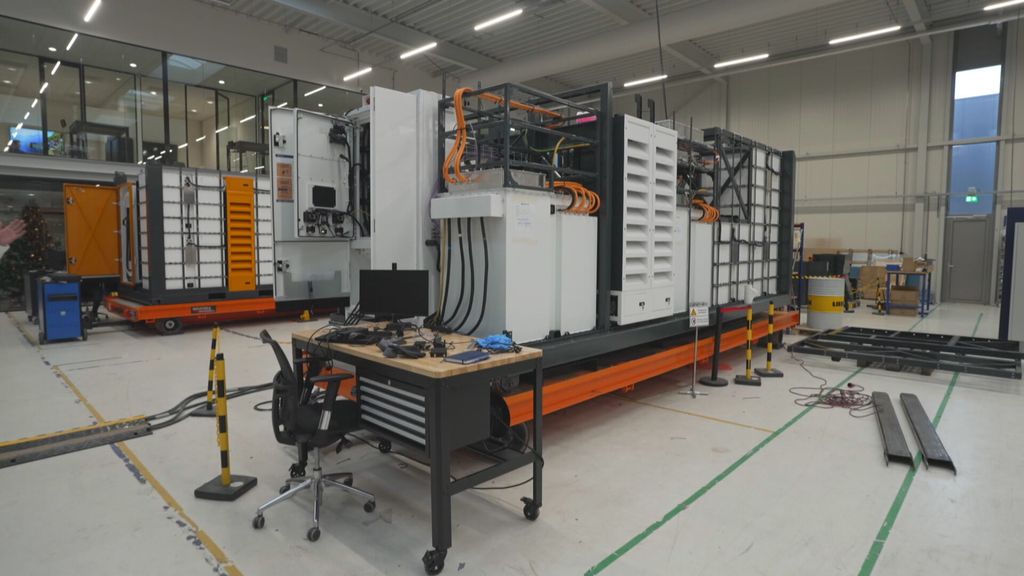
This article was last updated on January 2, 2025
Canada: ![]() Oye! Times readers Get FREE $30 to spend on Amazon, Walmart…
Oye! Times readers Get FREE $30 to spend on Amazon, Walmart…
USA: ![]() Oye! Times readers Get FREE $30 to spend on Amazon, Walmart…
Oye! Times readers Get FREE $30 to spend on Amazon, Walmart…
Table of Contents
With rapid battery growth, the risk of cyber attack also increases
From home batteries to battery systems at wind farms: the number of batteries in the Netherlands has increased exponentially in recent years. But as the number of batteries increases, so does the vulnerability to an attack on the electricity grid.
While our country had hardly any batteries in 2020, more than 40,000 were already in use last year. Nevertheless, batteries still form a small part of our energy system compared to, for example, solar panels.
But with an energy supply that is rapidly electrifying, storing energy is becoming increasingly important. In the coming years, batteries should make up at least a fifth of that storage.
If I were to order the battery to charge at the wrong time, I could disrupt the power supply of an entire neighborhood.
Tijn Swinkels, CEO battery manufacturer DENS
Like many solar panels, batteries are now ‘smart’: they are connected to the internet so that the manufacturer can collect data about the functioning and lifespan of the battery. This improves the performance of the batteries, but also makes them vulnerable to hackers and malicious manufacturers.
And by remotely instructing large batteries to charge at a time when the electricity grid is already at maximum power demand, this could lead to power outages locally or even regionally.
Chain reaction
Peter Palensky, professor of smart grids at TU Delft, indeed sees that a smarter electricity grid is also a more vulnerable grid. “A disruption via a battery or large group of solar panels can cause a chain reaction. The vulnerability mainly lies in how you integrate the battery into the energy system, and the safety measures you take or do not take.”
He does point out that batteries in the Netherlands are still small in scale. A hacking attack or interference by the manufacturer could now only have a local impact. “That will be different in five or ten years, and the impact could be regional or national. That makes it important that we regulate this properly.”
‘A disruption in the battery system can cause a chain reaction’
Chinese manufacturers dominate the global battery market and that worries the US government. It investigated the cybersecurity of batteries and decided last year to remove Chinese-made batteries from defense complexes and other critical infrastructure. But Europe intensifies the collaboration with Chinese battery giants.
Tijn Swinkels, CEO of the Dutch battery manufacturer DENS from Helmond, understands the American concerns. He has several large battery projects in the Netherlands. “We also have access to those systems, also here in Helmond. If I were to order the battery to charge at the wrong time, I could disrupt the power supply of an entire neighborhood here.”
Swinkels is particularly concerned about batteries from foreign manufacturers, from countries with which geopolitical tensions are increasing. He would prefer to see the European Union further stimulate its own battery production. Or is that preaching for your own parish? Not according to Swinkels: “We already have the wind at our backs, our turnover has grown by more than 1000 percent in recent years.”
The energy storage industry association, Energy Storage NL, also says it shares “concerns about the vulnerability of battery systems with regard to cybersecurity.” The trade organization advocates “focusing on an alternative battery industry” within the Netherlands and Europe.
New guidelines
For the time being, this subject is low on the Dutch policy agenda. Cyber security does not appear at all in the Dutch battery strategy which was updated in December. This while the European Union recently cybersecurity guidelines has adopted that the Netherlands will have to implement.
Energy Storage NL advises the Dutch government not to postpone good legislation and regulations any longer. “We therefore still call on the Dutch cabinet to implement and enforce the [European] regulations as quickly as possible.”
In response, the National Digital Infrastructure Inspectorate stated that it endorses the vulnerability of batteries, but says it works in a “risk-oriented manner” and also points out the small share that batteries currently have in our energy system. This summer, when new European legislation comes into effect, the inspectorate will expand its supervision to batteries.

Be the first to comment